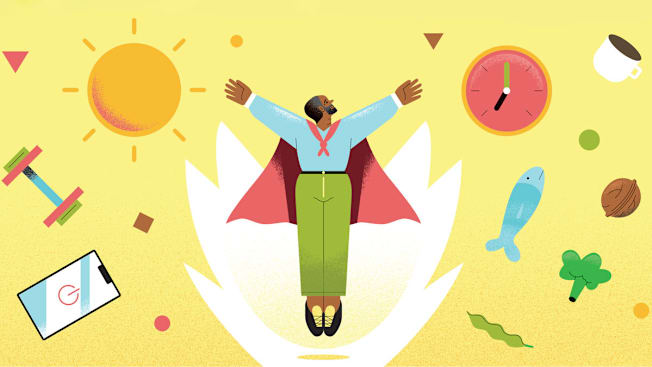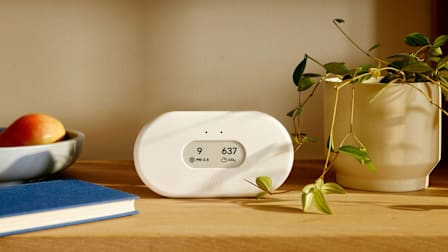How to Stop Feeling So Tired All the Time
These foods and moves are natural energy boosters

Everyone has those days when they could use a bit of a jump-start, mentally and physically. But for some people, feeling spent is more than an occasional occurrence. According to a 2025 analysis of studies published in the journal Scientific Reports, nearly half of older adults experience fatigue. That doesn’t mean, though, that a lack of energy is a normal part of aging.
If you often find yourself on the low end of the energy scale, the first thing to do is check with your doctor. Fatigue can be a symptom of an underlying health problem or a side effect of medication, such as certain drugs for allergies, depression, and high blood pressure. But in many cases, making changes to your diet, activity, mood, and sleep habits can be all you need to recharge. Try these simple tips.
Food Moves for Energy
While there’s no magic food to eat for more energy, a few diet strategies can help prevent slumps.
Space out your carbs. They’re the primary fuel for the cells in your body and brain. We can store only a small amount, so it’s important to eat carbohydrates throughout the day to keep your energy up, says Cary Kreutzer, RD, an associate professor at the USC Leonard Davis School of Gerontology. Aim for at least 35 to 45 grams at each meal (about the amount in a cup of cooked spaghetti).
Lift Your Mood
Doing things to feel calmer, happier, and more connected in the world can help you feel more energized.
Make time for movement. Activity releases “feel good” hormones like endorphins, serotonin, and dopamine, but that’s not the only way it perks you up. “Exercise improves blood flow, which keeps oxygen and nutrients moving throughout your body,” Naidoo says. That increase in oxygen, in particular, helps mitochondria, the part of our cells that produce energy, work more efficiently.
Get some morning sun. Exposure to daylight and darkness controls your circadian rhythms, which affect your sleep-wake cycles. Sunlight in the early morning triggers the production of cortisol and other hormones to help you wake up. “Midday sun exposure helps to extend that process for continued alertness,” Naidoo says. The sun also prompts your body to produce vitamin D. Lower levels are linked to depression and anxiety, two energy zappers. Ten minutes should do it; after that, be sure to apply sunscreen if you’re going to stay outside.
Set smartphone boundaries. Checking social media or playing Wordle may not seem like taxing tasks, but too much time on your phone or tablet can be draining, a 2023 study published in Scientific Reports found. Researchers asked 80 adults to either watch a documentary (which other research has established as a fatiguing activity) or use their phone for 45 minutes. Both activities were equally tiring. Rather than using your phone throughout the day, choose a few specific times to scroll (or even better, to connect with friends online).
Focus on Sleep
You may think you need less as you get older, but adults at any age require 7 to 9 hours of quality sleep, says Brienne Miner, MD, an assistant professor at the Yale School of Medicine who specializes in sleep and aging.
Watch what you drink. “Our ability to metabolize caffeine slows as we get older,” Miner says, and caffeine later in the day can interfere with falling or staying asleep. Similarly, if you drink alcohol, do so in the early evening. It can prevent your body from entering REM sleep, important for brain health.
Close the kitchen after dinner. Digesting food can interfere with sleep cycles. People who ate within the 3 hours before bedtime were 60 percent more likely to wake up in the middle of the night than those who didn’t, according to a 2020 study in the International Journal of Environmental Research and Public Health.
Skip OTC sleep meds. “If you need medication to help you sleep, talk to a doctor,” Miner says. Some manufacturers market over-the-counter “PM” drugs with the promise that they’ll give you a good night’s rest. But they can make you sluggish and affect your thinking during the day. Prescription sleep meds can also have adverse effects.
Editor’s Note: A version of this article also appeared in the July 2025 issue of Consumer Reports On Health.




